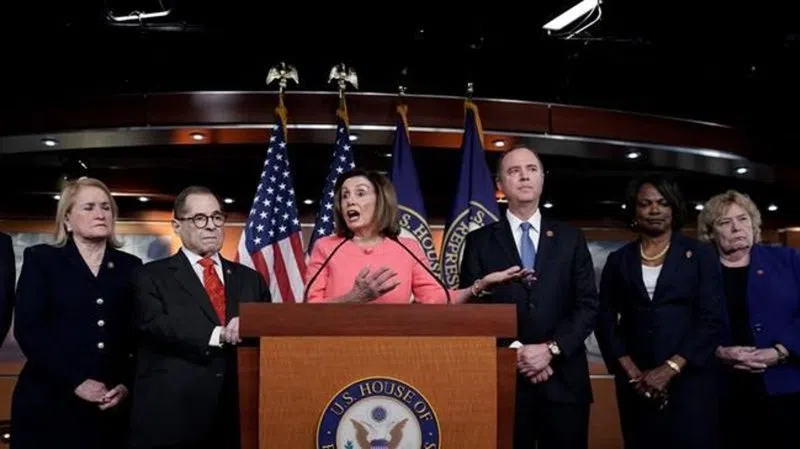
Impeachment ritual begins, perplexing Canadians more attuned to Parliament
WASHINGTON — For the third time in U.S. history, the president of the United States will stand trial in a uniquely American hybrid of judicial propriety and partisan politics, setting the sombre Senate ritual of impeachment on a collision course with Donald Trump’s appetite for chaos.
After formally impeaching Trump in an explosive hearing last month, the House of Representatives finally named its team of managers Wednesday before voting 228-193 to dispatch the articles to the Republican-led Senate, triggering a solemn display of pomp and ceremony on Capitol Hill.
“This is about the constitution of the United States,” said House Speaker Nancy Pelosi as she introduced the seven Democrats tapped to prosecute the U.S. president on charges of abuse of power and obstructing Congress, a team led by California’s Adam Schiff, chairman of the House intelligence committee.
“He has been impeached; he’s been impeached forever,” Pelosi said. “They can never erase that.”
